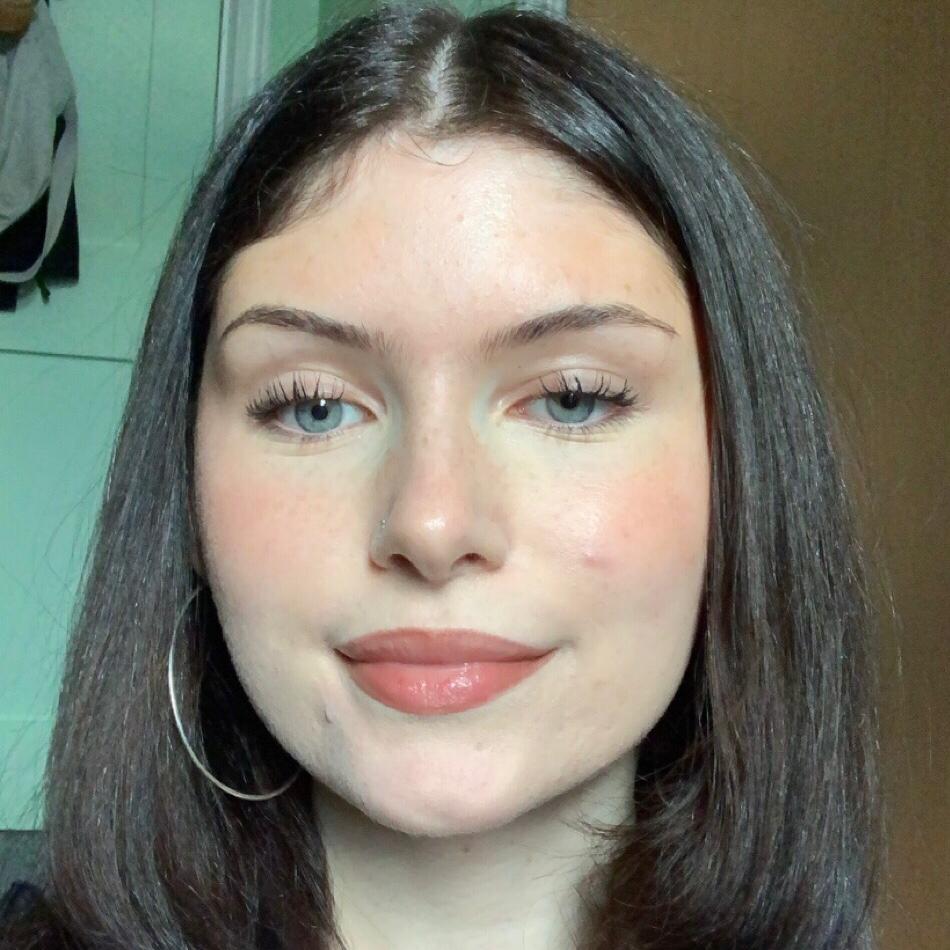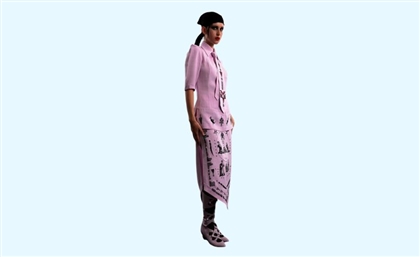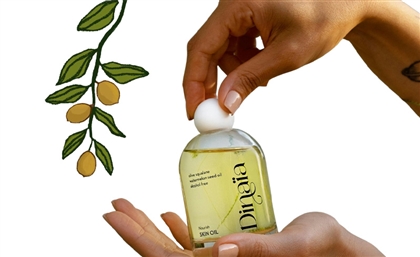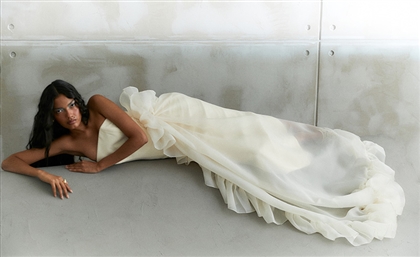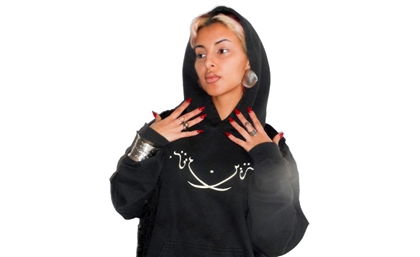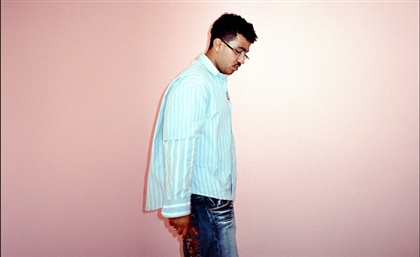Palestinian Designer Zeid Hijazi on Surviving as a 21st-Century Artist
In conversation with the young Palestinian-Jordanian designer keeping the industry on the edge of its seat.
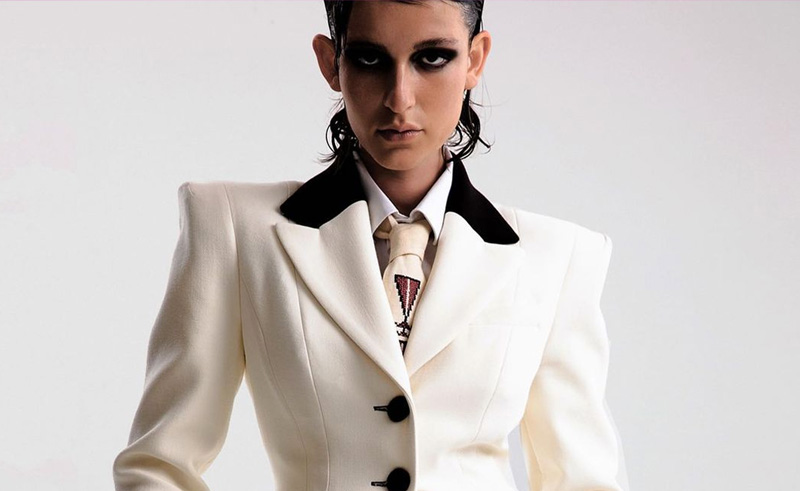
Cover Photo Credit: Amberderrick
Originally Published July 23rd, 2023
Zeid Hijazi is the Palestinian-Jordanian fashion undergraduate touted to be the next big visionary about half a dozen times since the launch of his first collection, ‘KALT’. Currently residing in London and studying at Central Saint Martins, he’s been the recipient of a barrage of hype, the Fashion Trust Arabia Debut Talent Prize, and plenty of industry voices waxing lyrical about his potential.

Image courtesy Zeid Hijazi’s Instagram
“I don’t want to sound super egotistical or anything, but honestly I don’t feel under pressure because I know I have the skills,” Hijazi tells Scene Styled. Under a kind of pressure that would make most of us feel a bit nauseous, Hijazi is refreshingly confident in his ability to surpass those expectations: “It’s more like a feeling of excitement that comes from knowing there are people who appreciate my work and are watching what I'm going to do next.”
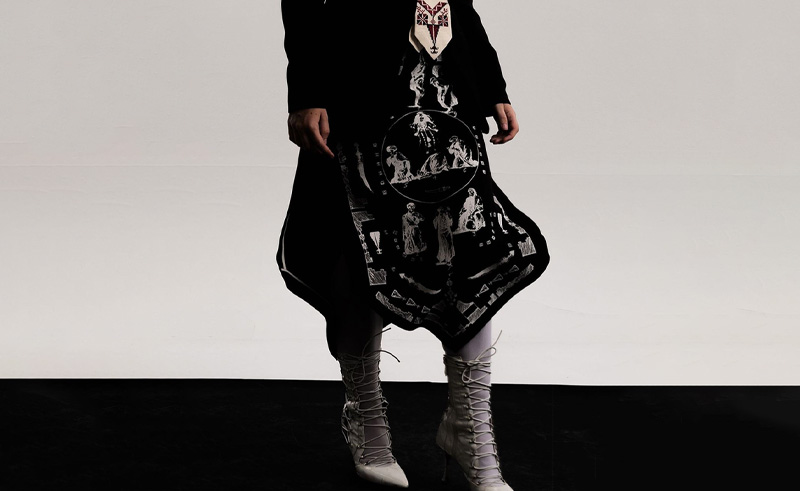
Photo Credit: Amberderrick
The collection grabbed fashion writers by the throat (and is evidently yet to let them go) for a reason. Inspired by the Tunisian film Bedwin Hacker, which centres a female hacker who broadcasts messages of North African liberation via television piracy. Hijazi explains that the parallels drawn between the plot of the film and the issue explored by the collection - the occupation of Palestine - are abstract. Both works share the thread of resisting a foreign threat to a people’s liberty.
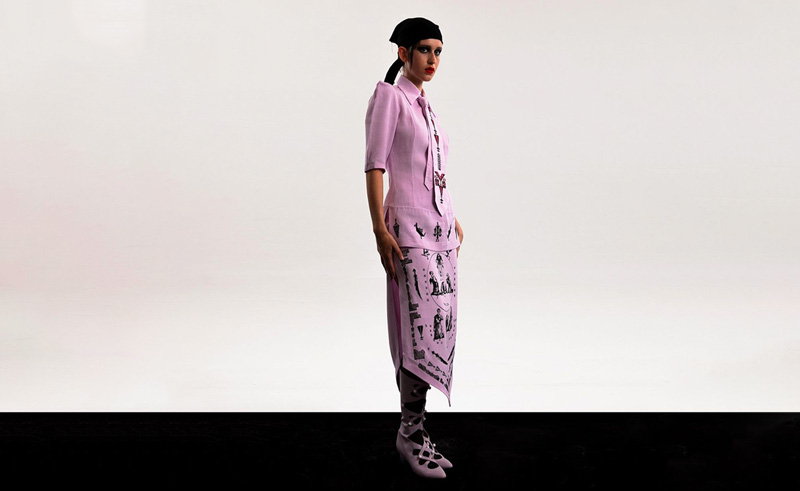
Photo Credit: Amberderrick
Angular, arresting, and a little bit gothic, the pieces themselves are a masterclass in subversive tailoring, impeccable garment construction, and potent symbolism. Hijazi worked with the Association for the Development of Palestinian Camps (INAASH) in Lebanon to develop the ‘Moon of Palestine’ neckties, which are emblazoned with a traditional Palestinian embroidery.

Photo Credit: Yiling Zhao
Whilst his inaugural ‘KALT’ collection is one completely inspired by Palestine, that doesn’t mean that all of the young designer’s work will be centred around this aspect of his identity: “Of course I’m very educated and passionate about Palestine,” Hijazi explained, “but there’s a lot more to me artistically than just my culture. Existing as a Palestinian and making a name for myself in a country which facilitated the occupation of my home is an act of resistance in itself.”

Image courtesy Zeid Hijazi’s Instagram
As far as his creative process is concerned, Hijazi’s is holistic, deliberate, and never rushed. He’ll begin by searching for a film or other piece of art to inspire his own, and then builds his collections not piece by piece, but rather look by look and as a cohesive unit - “like the curator of a gallery,” he explains.
It’s clear that this young designer sees his work as an intellectual and artistic pursuit rather than a purely sartorial one, and Zeid Hijazi feels that he is influenced more by designers as people rather than by designs themselves.
“People often say they see McQueen in my work,” Hijazi said, “and I can see that. But I don’t think it’s due to direct visual inspiration. I’m more inspired by his mindset at the time of creating. The life stories of designers are what inspire me.”
For Hijazi, making a name for himself now is all about survival - there’s a climate of anxiety among fashion graduates right now. “People are graduating and just not finding work,” he admitted. In response to an increasingly bleak job market, Hijazi started to invest energy into establishing his brand before graduation.
“I see myself as an artist, so that just means art will be my business.”
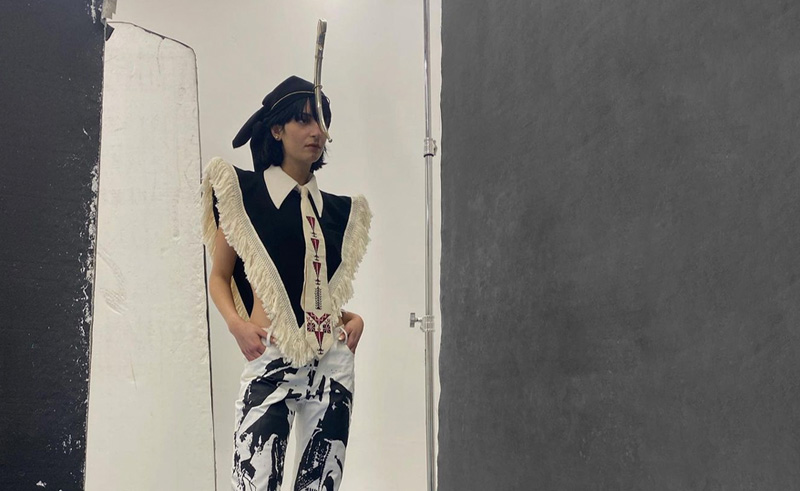
Image courtesy Zeid Hijazi’s Instagram
It’s all about ensuring he’ll be able to continue creating. “I get on the tube and I see people on their way to work, with their tired eyes, creased suits, you know, they’re not excited about where they’re going. Being a creative allows me to escape that. If designing pieces that are more commercial ensures I can keep being an artist, then I don’t see how that can be a negative.”
The popular lamentation among designers about being forced to ‘go commercial’ isn’t a sentiment Hijazi shares: “I think it shows you’re a good designer if you can make your artistry clearly visible in a commercial piece,” he shares. “I’m a designer because I’m an artist, yes, but ultimately I love dressing women. Of course designers want to make these crazy, conceptual pieces, but how are you going to fund that?”
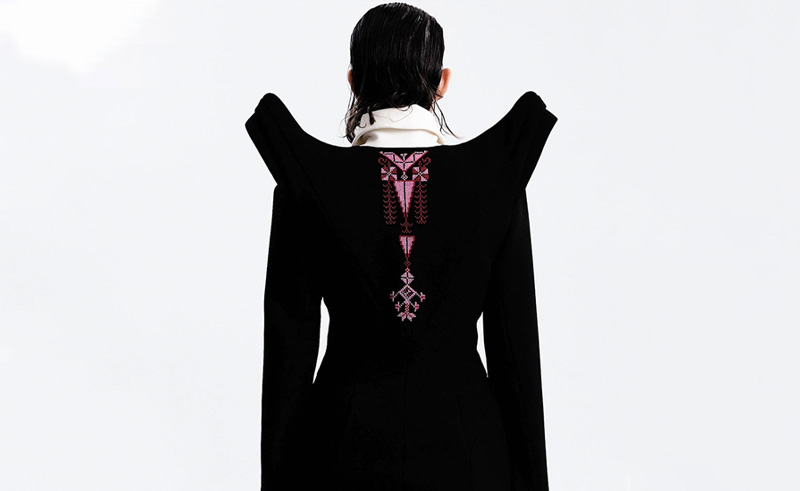
Image courtesy Zeid Hijazi’s Instagram
Looking forward, Zeid’s calm and assured ambition is evident once again. “There’s a lot I’d love to do,” he starts, as he talks of delving into other forms of art, like film. He’s a fan of Tom Ford’s, one example of a fashion designer-turned-multidisciplinary artist.
That’s not to say he doesn’t have his sights set on a stint at creative direction one day. He’d love to bring his darker, moodier sensibilities to a house that isn’t typically known for that kind of aesthetic. “Take Galliano at Dior,” he explained, “when you see pieces from that era, you know instantly it’s him. I’d like to leave a mark a bit like that,” he added with a laugh, “although every young designer will probably tell you the exact same thing.”

